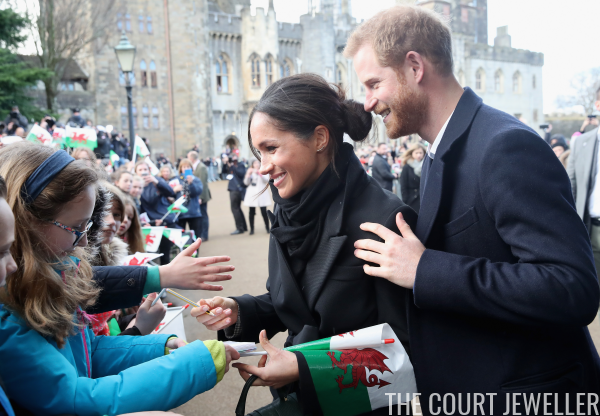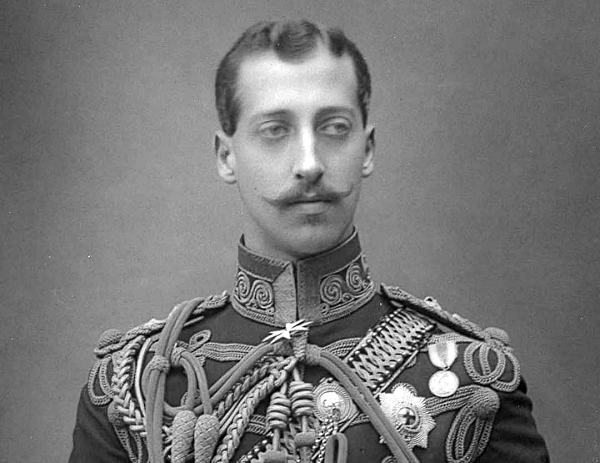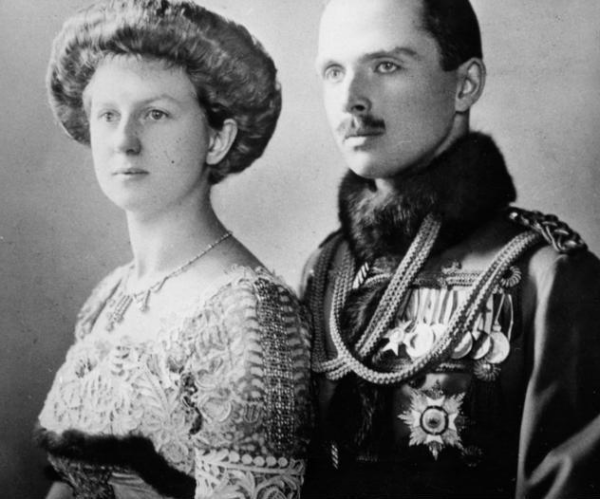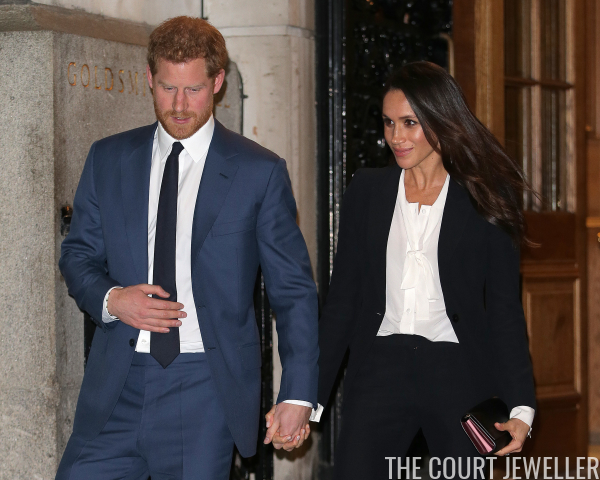 |
| Chris Jackson/Getty Images |
Sussex: There hasn’t been a Duke of Sussex since 1843, when Queen Victoria’s uncle, Prince Augustus, Duke of Sussex, died. The title doesn’t have a lot of baggage, strictly speaking, which is probably why it’s often listed as a front-runner for Harry. I think one possible issue, though, is the fact that it’s headline fodder. How often will we see Harry and Meghan described as Sus-sexy in the tabloids??? (Also, “Duchess of Sussex” is a heck of a tongue-twister.)
 |
| Prince Albert Victor of Wales, the most recent Duke of Clarence (Wikimedia Commons) |
Clarence: The last royal Duke of Clarence was Prince Albert Victor, son and heir of King Edward VII, who died in 1892. (He actually had a double dukedom, Clarence and Avondale.) The title was previously a royal earldom for his uncle, Prince Leopold, who died young of hemophilia. Prince Albert Victor doesn’t have the most spotless of historical reputations; he was promiscuous and linked to scandal during his brief life. Two princes, who both died young, and one of whom was (incorrectly) rumored to be Jack the Ripper? I’m not sure Harry, who has had his own fair share of scandal already, needs that kind of titular legacy.
Windsor: This dukedom has been created precisely once, for the former King Edward VIII, who married an American divorcee. I cannot imagine that the Queen would make Meghan (who is, of course, another American divorcee) follow in the footsteps of Wallis Simpson. And then, add in the Windsors WWII-era politics and the unfortunate costume decision Harry once made? Nope. There’s just no way.
Kendal: There’s only been one (almost) Duke of Kendal in British history — Charles Stuart, the infant son of King James II, was supposed to be officially granted the title, but he died before his first birthday. The title has also been given as an earldom, and it was once given to a woman in her own right: Ehrengard Melusine von der Schulenburg, a mistress of King George I. (She was made Duchess of Kendal in 1719.) Kendal Castle also has a royal link: it was owned by the family of King Henry VIII’s last wife, Catherine Parr. The previous associations of the title aren’t outstanding, but they’re not horrible, either.
Ross: Here’s another royal dukedom that’s been vacant for a very long time. The last Duke of Ross was Alexander Stewart, the youngest son of King James IV of Scotland. (He also died as a baby.) The Windsors love Scotland, and bestowing a Scottish dukedom on one of the princes could help reinforce the links between the royals and the country at a time when the movement for Scottish independence is very much alive. However, there is currently an Earl of Rosse in the peerage. (Intriguingly, that title is currently held by a royal relative: Brendan Parsons, the half-brother of the late 1st Earl of Snowdon.)
 |
| The last Duke and Duchess of Albany, who were deprived of their British titles in 1919 (Wikimedia Commons) |
Albany: The dukedom of Albany isn’t technically vacant; it’s suspended. The last Duke of Albany was Queen Victoria’s German grandson, Charles Edward, who was also Duke of Saxe-Coburg and Gotha. He was deprived of his British titles in 1919 because he fought for the Germans in World War I. (After that, his politics got even worse, to put it mildly.) Not an option.
Cumberland: Ditto Albany; the Cumberland dukedom is also suspended, not vacant. It was held by the royal family of Hanover (descendants of Queen Victoria’s uncle, the Duke of Cumberland) until World War I, but its last holder, Ernst August, was deprived of the title in 1919. Also not an option.
Connaught: Queen Victoria’s great-grandson, Alastair Windsor, was the last Duke of Connaught; he died in 1943. (Unfortunately, his death happened after he drunkenly fell out of a window while on military service in Canada.) Alastair’s death aside, the Connaught title doesn’t have significant negative associations. But Harry won’t get it, for one simple reason: Connaught is located today in the Republic of Ireland, which means that it’s no longer part of the United Kingdom. It’s off the table.
 |
| Ben Stansall – WPA Pool/Getty Images |
*One British prince, Harry’s Uncle Edward, was given an earldom rather than a dukedom when he married in 1999, but that’s because he will one day be given his father’s title, becoming Duke of Edinburgh. Here’s how that will work: when Prince Philip dies, Prince Charles will inherit the Edinburgh dukedom, because he is Philip’s eldest son. (Charles won’t use it, though, because his current title, Prince of Wales, ranks higher.) When the Queen dies, and Charles becomes king, the Edinburgh dukedom will “merge with the crown” — meaning that Charles will then be free to give it to someone else. According to a family plan drawn up in 1999, that someone will be Edward. He and Sophie will then become Duke and Duchess of Edinburgh. (That’s one of the reasons that they have taken such an active part in the Duke of Edinburgh award scheme in recent years.)
Leave a Reply